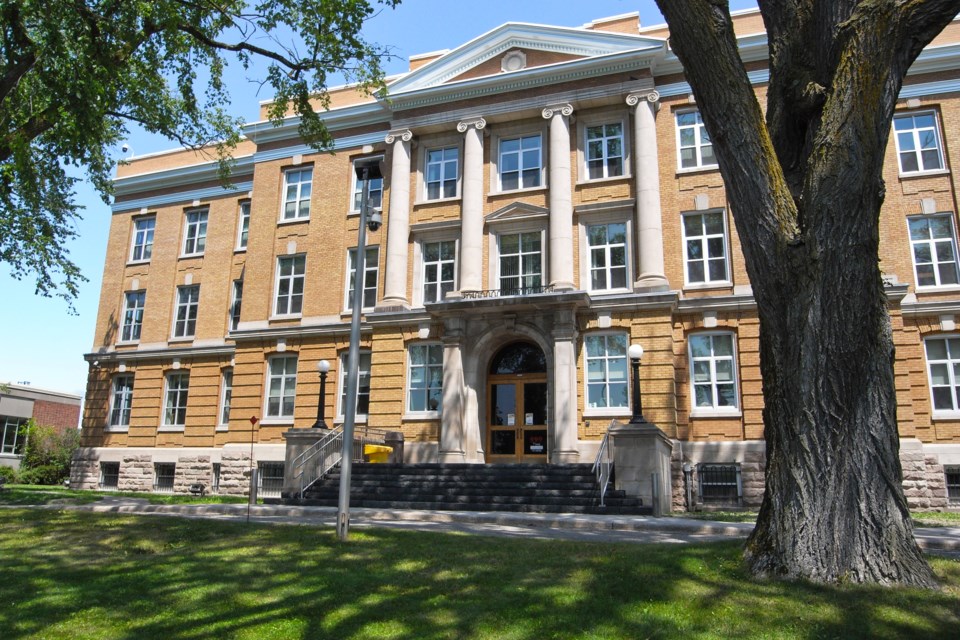Six years after her brother was brutally murdered by his best friend, Laura Topping stood in a Sault Ste. Marie courtroom and told his killer she forgives him.
"My life has never been the same since his death," the young woman said Friday, fighting back tears as she described how Brad Southwind's actions have affected her family.
"I know if Joseph was here he would tell me to forgive you," she said at the 28-year-old Elliot Lake man's sentencing hearing.
"I know he's at peace. I know one day I will see my brother again."
Superior Court Justice Michael Varpio found Southwind guilty of second-degree murder in the stabbing death of the man he called his best friend earlier this year.
Police located the body of the 31-year-old victim on Feb. 14, 2018 in a wooded marshy area behind a complex where the two men had apartments.
Topping had been stabbed 17 times with a knife.
His sister described him as a kind person who always tried to help others, protected his siblings when they were children and "ended up being murdered by his so-called best friend."
Laura said their father was never the same following his son's death and passed away 18 months later, her oldest sister died by suicide in 2021 and their grandparents also passed away after Joseph was killed.
"I cry everyday. All that happened has left me empty inside."
She also told Southwind that she knows he has remorse and if he could go back in time he would not do this.
Southwind, a small man who was wearing a suit that was much too large for him, sat between two court security officers, with his head down most of the time.
Drugs and mental health issues played a role in the murder.
An expert in forensic psychiatry testified at the trial that the accused was psychotic at time of the incident, wasn't taking medications prescribed to treat his schizophrenia and was heavily abusing illicit drugs, particularly crystal meth.
Southwind "was very intoxicated," hallucinating and delusional. He believed Topping could read his mind and was telepathically telling him that he wanted to die.
The penalty for second-degree murder is a life sentence with parole eligibility between 10 and 25 years.
The Crown argued the appropriate range, given the brutality of the killing and Southwind's criminal record which includes numerous convictions for violence, is 13 to 15 years.
Prosecutor David Didiodato cited the nature of the offence — a brutal killing with a large knife.
Topping had 17 stab wounds to his head and upper torso of his body, which were inflicted with force.
The offence had elements of planning and was "an unprovoked, unexplained murder of an innocent person," the assistant Crown attorney said. The victim was unarmed and defenceless.
Given all the factors, including Southwind's background and mental health issues, Didiodato asked the court to impose 13 years parole eligibility.
Defence lawyer Don Orazietti maintained the time his client already has spent in custody since his arrest in August 2018 calls for 10 years parole eligibility.
For the last several months, Southwind has been in custody in a cell at the Algoma Treatment and Remand Centre.
He's been heavily sedated, and that's why there's been an issue with getting background information for a pre-sentence report, he told Varpio.
"His physical health is deteriorating and his future is very guarded with all his disabilities," Orazietti said.
Southwind hasn't "followed his medical regime which is a real recipe for disaster."
Pointing to Southwind's disadvantages as an Indigenous person, his drug abuse and mental health issues — including falling through the cracks — he told Varpio "the justice system isn't the answer. We're just part of the mechanism."
A Gladue report wasn't available to the court, but the Crown provided information that was gleaned from various sources.
The court must consider an Aboriginal offender's background during sentencing.
These factors include discrimination, physical abuse, separation from culture or family, or drug and alcohol abuse.
Southwind has at least two grandparents who attended residential school and he wasn't raised in the Indigenous culture, Didiodato said.
He began drinking alcohol at age 11, was using marijuana, percocet and crack cocaine at 12.
At the early age of 13, he resorted to a life of crime and also had mental health issues which were detailed in reports and medical records.
Southwind struggled most of his life — suffered from delusions in 2015 and was diagnosed with schizophrenia the following year.
He stopped taking his anti-pyschotic medication in 2017 and began self-medicating.
"This had a clear and direct connection to his life and this incident," Didiodato said.
The Crown also noted Southwind's clear remorse when he was interviewed by police.
He was emotional about what he had done, telling the officer "I wish I could take it back. I wish I could go back and do it differently."
At the end of the interview, he wrote a letter of apology to Topping's mother.
When Varpio asked the young man if he wanted to say anything he stood up and muttered a few words, which were difficult to hear.
The judge said he hopes to have his decision in about three weeks.
A date for the sentencing will be set Wednesday.
